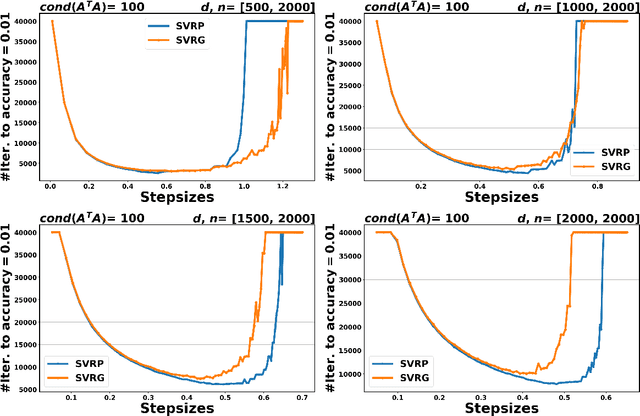Cheik Traoré
Variance reduction techniques for stochastic proximal point algorithms
Aug 18, 2023



Abstract:In the context of finite sums minimization, variance reduction techniques are widely used to improve the performance of state-of-the-art stochastic gradient methods. Their practical impact is clear, as well as their theoretical properties. Stochastic proximal point algorithms have been studied as an alternative to stochastic gradient algorithms since they are more stable with respect to the choice of the stepsize but a proper variance reduced version is missing. In this work, we propose the first study of variance reduction techniques for stochastic proximal point algorithms. We introduce a stochastic proximal version of SVRG, SAGA, and some of their variants for smooth and convex functions. We provide several convergence results for the iterates and the objective function values. In addition, under the Polyak-{\L}ojasiewicz (PL) condition, we obtain linear convergence rates for the iterates and the function values. Our numerical experiments demonstrate the advantages of the proximal variance reduction methods over their gradient counterparts, especially about the stability with respect to the choice of the step size.
Sequential convergence of AdaGrad algorithm for smooth convex optimization
Nov 24, 2020Abstract:We prove that the iterates produced by, either the scalar step size variant, or the coordinatewise variant of AdaGrad algorithm, are convergent sequences when applied to convex objective functions with Lipschitz gradient. The key insight is to remark that such AdaGrad sequences satisfy a variable metric quasi-Fej\'er monotonicity property, which allows to prove convergence.
 Add to Chrome
Add to Chrome Add to Firefox
Add to Firefox Add to Edge
Add to Edge